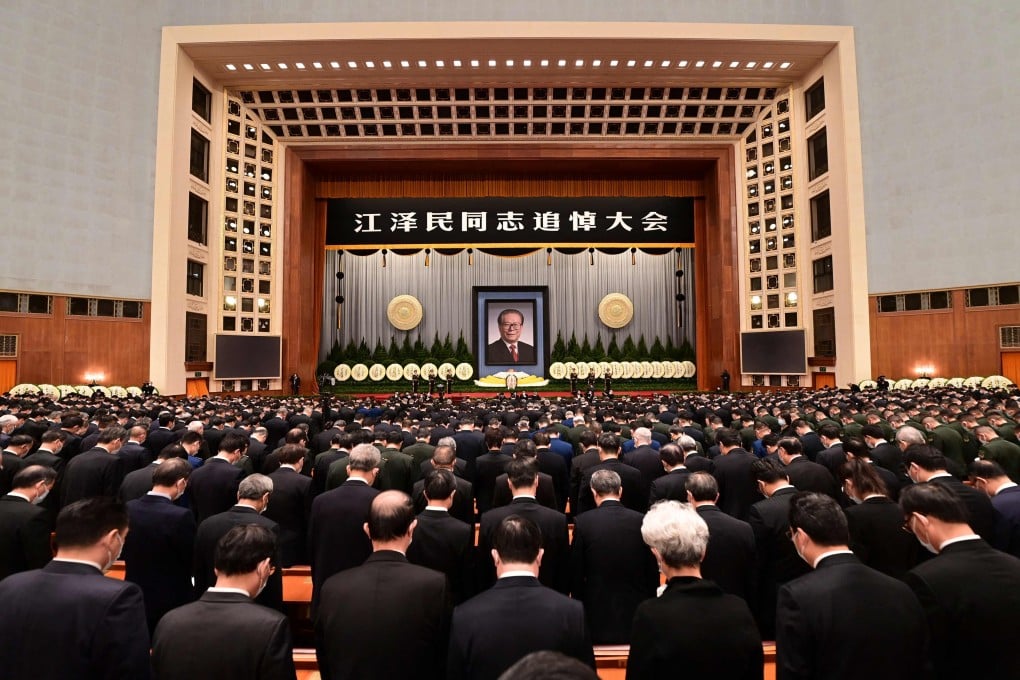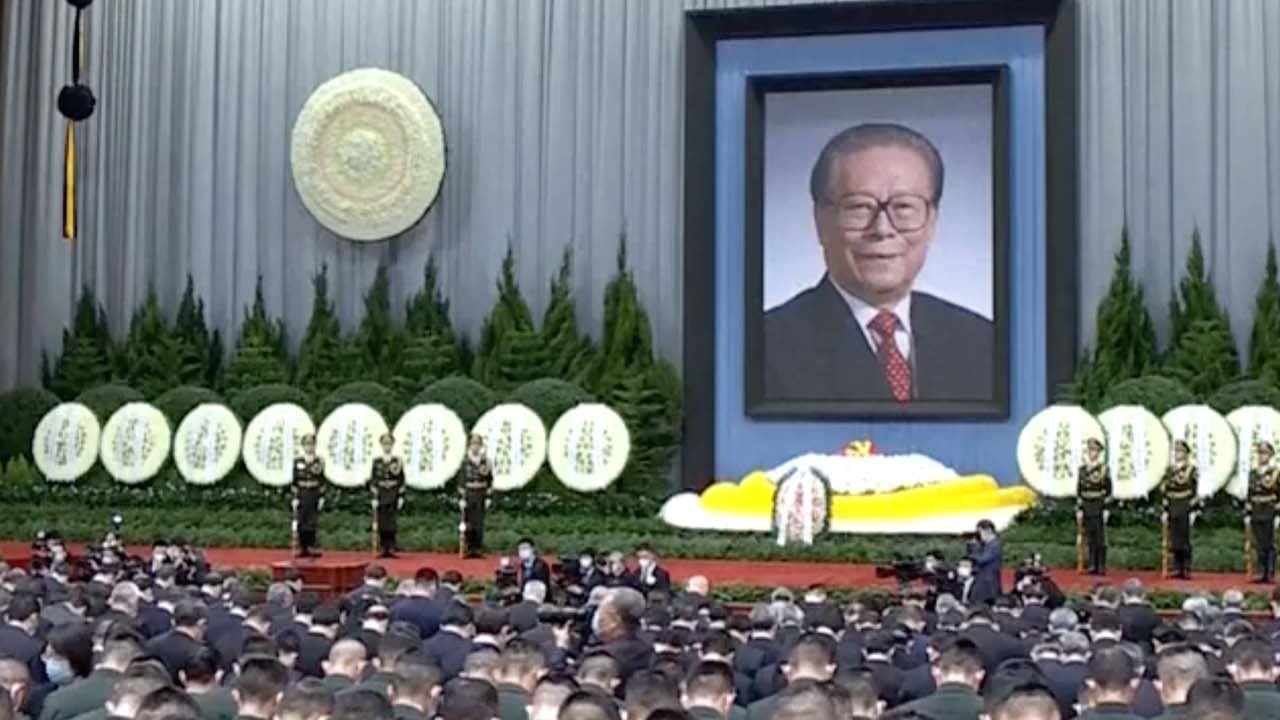Jiang Zemin funeral: Xi Jinping hails late leader for steering China through tough times and defying Western pressure
- Xi vows to carry on with opening up to the world while also working for ‘national rejuvenation’
- Hu Jintao among notable absentees but attended a closed-door memorial a day earlier

He also praised the late leader for standing up to foreign pressure, fending off Taiwan separatists, and ensuring the smooth handover of Hong Kong and Macau to China during his 13 years at the helm.
“Some Western countries imposed ‘sanctions’ on China, and socialism in China was met with unprecedented difficulty and pressure,” Xi said, referring to the late 1980s and early 1990s when the West turned its back on China after the 1989 Tiananmen crackdown.
Jiang conducted a “diplomatic struggle” and resolutely defended China’s independence, dignity, security and stability, he said.
The memorial service was the highest-level event of its kind since the state funeral for paramount leader Deng Xiaoping in 1997 and came at a particularly sensitive time.
